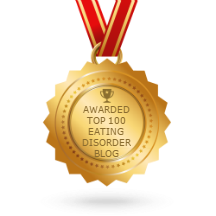- Home
- About
-
Services
- Therapy
-
Eating Disorder Trainings
>
- Clinical Approaches To Treating Body Image Issues
- Clinical Approaches To Treating Bulimia & Binge Eating Disorder
- Finding Freedom From Binge Eating
- Finding Freedom From Anorexia
- Supporting A Loved One With An Eating Disorder
- Eating Disorder Recovery Road Map
- Healing From Body Hate And Practicing Self-Compassion
- Common Questions
- Blog
- Press
- Contact
|
Have you ever had the experience where you woke up feeling ok in your body, but then suddenly and almost without warning, you fell into a moment of bad body image?
The reality is that for many of us, our body image (i.e. our perception of our body), fluctuates on a weekly, daily, or even hourly basis. There are numerous things that could trigger someone to experience poor body image and also a variety of ways that an individual can work to improve their body image. As a therapist in Rockville, MD, specializing in helping adolescents and adults struggling with eating disorders and body image issues, I use a variety of tools and strategies to help my clients to make peace with their bodies. One strategy is to explore with them some helpful questions that they can ask themselves when they are struggling with bad body image. Question 1: Is there anything else that is bothering me or causing me stress, which I might be expressing by shifting focus onto my body? The following is an initial question that is important to ask yourself when struggling with bad body image: “Is there anything else that is bothering me or causing me stress, which I might be expressing by shifting focus onto my body?” Often it is easier to focus on what we dislike about our outward appearance, then to think about the other issues in our lives that the body-hatred may be masking. For instance, it may be easier to talk about hating your thighs, then to reflect on how your recent breakup has left you feeling unworthy and unloved. "Recognizing that sometimes your poor body image is triggered by other situations in your life may help you to see that attempting to change your body, will not bring you the happiness and contentment that you are seeking." When you are suddenly flooded with a bad body image day or moment, I would urge you to dig deep and try to uncover what else might be upsetting you. This way you can work to address what might actually be bothering you, which you are projecting onto your body. "Think of your experience of poor body image as an important signal, which tells you that you might need to pay attention to something else in your life." Question 2: What do I feel that having my "ideal body" would bring me? Another critical question to ask yourself when struggling with bad body image, is what do you feel that having your “ideal body” would bring you? No one desires to have a certain body type simply for the sake of acquiring that body type. Rather, often we desire to look a certain way because of what we believe it will bring us. For instance, diet-culture teaches us that “thinness” will give us a sense of self-worth, love, health, and acceptance. While it is true that weight discrimination exists and that people in larger bodies are often unfairly judged in our society, the reality is that we cannot control our world, other’s opinions of us, or our ability to be loved through our weight or body. Every day people of all shapes and sizes find love, achieve success, and feel joy and happiness. Happiness and health is not size-specific. Question 3: How can I be kind to myself in this moment? Further, if you are experiencing poor body image, “beating yourself up” for feeling this way, will only serve to make you feel worse. Rather, it is important to work to practice self-compassion. Self-compassion is simply extending the same kindness to yourself, that you would to a loved one who was struggling. Additionally, it’s important not to blame yourself for putting your sense of self-worth onto your body. From the time that we are children, diet-culture teaches us that “thinness” is the magical solution to all of our problems. This makes sense, as it is what helps to keep the $60 billion diet industry alive and thriving. It is not your fault that you are struggling and you deserve to be kind to yourself. It can be helpful to practice compassionate self-care activities, rather than resorting to negative coping strategies when you are experiencing bad body image. Obsessing about your body and hurting it through over-exercise, binging, or starving, are all coping strategies that you may be attempting to use to try to relieve pain. The impulse to practice these negative coping strategies comes from a good place, as your goal is often to “feel better.” However, while these strategies may make you feel temporary relief. They often cause you to feel even worse in the long-term. Instead, think about activities that you can do, which help you to feel relaxed or that boost your mood. For instance, drawing, journaling, spending time with friends, taking a bubble bath, meditation, or playing with a pet, are all some self-care ideas that you might consider trying. There Is Hope Further, it’s important to note that many individuals have experienced poor body image in their lifetime. You are definitely not alone in feeling this way and there are things that you can do to improve your body image. If your inner critic is particularly loud, it might be helpful to consider meeting with a therapist who can help you to uncover what might be contributing to your poor body image, as well as some strategies to help you to begin to move toward body-neutrality and acceptance. With access to appropriate support and treatment, you can make peace with your body. This will enable you to spend your time exploring your passions, building relationships, and helping others, rather then wasting it ruminating on specific body parts that you do not like. All bodies are beautiful. However, your appearance does not define your worth or value. Your value lies in the kindness that you extend to others, the spark in your eyes when you laugh, the way that you pursue your passions, and your relationships. You are worthy of love and belonging. You are enough, just as you are. Jennifer Rollin, MSW, LCSW-C: is an eating disorder therapist in private practice in Rockville, Maryland. Jennifer specializes in helping adolescents and adults struggling with eating disorders, body image issues, anxiety, and survivors of trauma. Jennifer offers eating disorder therapy in Rockville, Maryland, and eating disorder recovery coaching via phone/Skype. This article was previously published on The Huffington Post.
0 Comments
Leave a Reply. |
About MeI'm an eating disorder therapist in private practice in Rockville, MD. Archives
June 2024
|


 RSS Feed
RSS Feed
